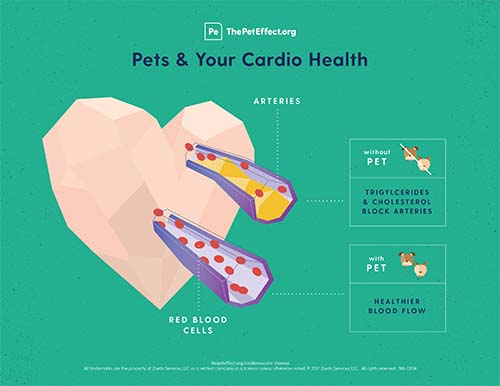Washington, D.C. (September 28, 2015) — The Human Animal Bond Research Initiative (HABRI) Foundation today announced funding for seven research grants in 2015, totaling more than $225,000 dollars. Focused on child health and development, mental health and wellness, and healthy aging, these grants will advance scientific understanding of the human-animal bond and its impact on human health.
“As one of the organization’s founders, I am proud of how far we have come in only a few years,” said Bob Vetere, President and CEO of the American Pet Products Association and President of the HABRI Board of Trustees. “With HABRI, we can put science behind what many of us believe – if we take good care of our pets, they will take good care of us!”
“The companies and organizations that support HABRI are leaders in supporting the scientific research to advance our knowledge of the human-animal bond,” said HABRI Executive Director Steven Feldman. “Everyone associated with HABRI is grateful for their commitment to this important endeavor.”
HABRI has awarded a total of $226,557 to the following recipients and research projects:
- Sandra Branson, PhD, MSN, RN (University of Texas Health Science Center at Houston): Biobehavioral Effects of Therapy Dog Visitation in Elderly Intensive Care Unit Patients
- Alan E. Kazdin, PhD, ABPP (Yale University): Interactions with Animals to Reduce Children’s Stress
- Rebecca A. Johnson, PhD, RN, FAAN, FNAP (University of Missouri): Companion Animals, Social Engagement, and Psychological Well-Being in Mid and Later Adulthood
- Annie Petersen, Ed.D (Association for Human-Animal Bond Studies): Listening EARS: How Does Reading to Rabbits Effect the Reading Skills of Third Grade Students?
- Robin L. Gabriels, PsyD (University of Colorado, Denver): Physiological Wellness Effects of Animal-Assisted Activities in Children with Autism Spectrum Disorder in a Specialized Psychiatric Hospital Program
- Marguerite E. O’Haire, PhD (Purdue University): Pilot Study of the Effects of Service Dogs on Mental Health and Wellness in War Veterans with PTSD and/or TBI
- Alan Monavvari, MD, MHSc, CCFP, CHE, CPHQ (Markham Stouffville Hospital): Using the Pet Query to Assess Patients’ Environmental History and Social Context
HABRI’s annual grant program is managed in partnership with the Morris Animal Foundation, a nonprofit organization that invests in science that advances knowledge and improves health for companion animals, horses and wildlife. Proposals were evaluated on study design, investigator capabilities, adequacy of facilities, cost effectiveness of budget, and potential for impact on the way these areas of interest are diagnosed, treated, or otherwise understood by an independent Scientific Advisory Board comprised of experts in the field.
“I am keenly interested in improving the quality of life among those who are experiencing stress, strains, and challenges of everyday functioning,” said one study’s primary researcher, Dr. Alan Kazdin, professor of Psychology and Child Psychiatry at Yale University, Ph.D, ABPP.
Another researcher, Marguerite O’Haire, PhD of Purdue University said of her grant, “There are existing PTSD treatments available for veterans, however a number of them have limited effectiveness and high drop-out rates. This new research study on the impact of service dogs on veterans may provide an effective addition to enhance current practices.”
“High-quality scientific evidence will ultimately allow more people to benefit from the healing power of companion animals,” Feldman added. “More pets lead to healthier people, families and communities.”
About HABRI
The HABRI Foundation maintains the world’s largest online library of human-animal bond research and information; to date has funded more than half a million dollars in innovative research projects to scientifically document the health benefits of companion animals; and informs the public about human-animal bond research and the beneficial role of companion animals in society. For more information about the HABRI Foundation, visit www.habri.org.
Contact
Jamie Baxter
jamie@theimpetusagency.com
775.322.4022
###





